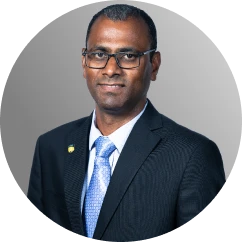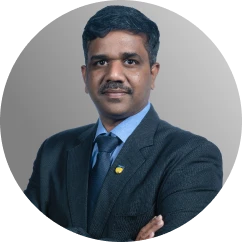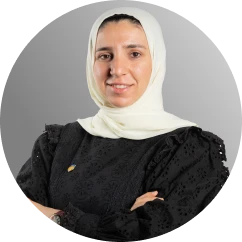
The Bachelor of Science in Electrical Engineering degree at Amity University Dubai helps students gain a solid grasp of fundamental principles and learn to apply this knowledge effectively, whether as independent thinkers or collaborative leaders in diverse teams. This degree opens doors to a world where students can shape power generations, distribution systems, facilitate telecommunication, and drive innovation in electronic devices.
From traditional power plants to cutting-edge 5G networks, smartphones, agile robots, and aircraft control systems, electrical engineers are pivotal in advancing technology in a person's daily life.
The Bachelor of Science in Electrical Engineering degree involves designing power electronic circuits, power flow analysis in power systems, analyse various applications of electrical machines, study of measurement, Photovoltaic systems, automation systems, electrical vehicles, VLSI design and embedded systems.
Students have the flexibility to choose elective courses aligned with their interests, complementing core studies. Successful candidates for this degree should possess solid math and physics skills, a grasp of basic electrical components and circuitry, and problem-solving abilities, approaching challenges methodically and creatively.
Amity University Dubai's Bachelor of Science in Electrical Engineering degree aims to prepare students with a global perspective and innovative mindset for successful engineering careers. It emphasises excellence in technical areas within electrical engineering. It places significant importance on general education, ethical and social responsibility, and pursuing lifelong learning, all contributing to future electrical engineers' personal and professional growth. Students of this course can find employment opportunities in nearly all major sectors, ranging from semiconductor and renewable energy to academia, government, and defence.
Bachelor of Science in Electrical Engineering with a concentration in Solar Energy focuses on using concepts and applications of solar energy to identify, formulate, and solve energy problems. Students will also design sustainable solar energy systems to produce solutions that meet environmental and economic needs.
- Identify, formulate, and solve complex engineering problems by applying principles of engineering, science, and mathematics.
- Apply engineering design to produce solutions that meet specified needs with consideration of public health, safety, and welfare, as well as global, cultural, social, environmental, and economic factors.
- Communicate effectively with a range of audiences.
- Recognise ethical and professional responsibilities in engineering situations and make informed judgments, which must consider the impact of engineering solutions in global, economic, environmental, and societal contexts.
- Function effectively on a team whose members together provide leadership, create a collaborative and inclusive environment, establish goals, plan tasks, and meet objectives.
- Develop and conduct appropriate experimentation, analyses and interpret data, and use engineering judgment to draw conclusions.
- Acquire and apply new knowledge as needed, using appropriate learning strategies.
- Use concepts and applications of solar energy to identify, formulate, and solve energy problems.
- Design solar energy systems to produce solutions that meet specified needs with sustainable, environmental, and economic factors.
Programme Completion Requirements
50%scholarships available
























